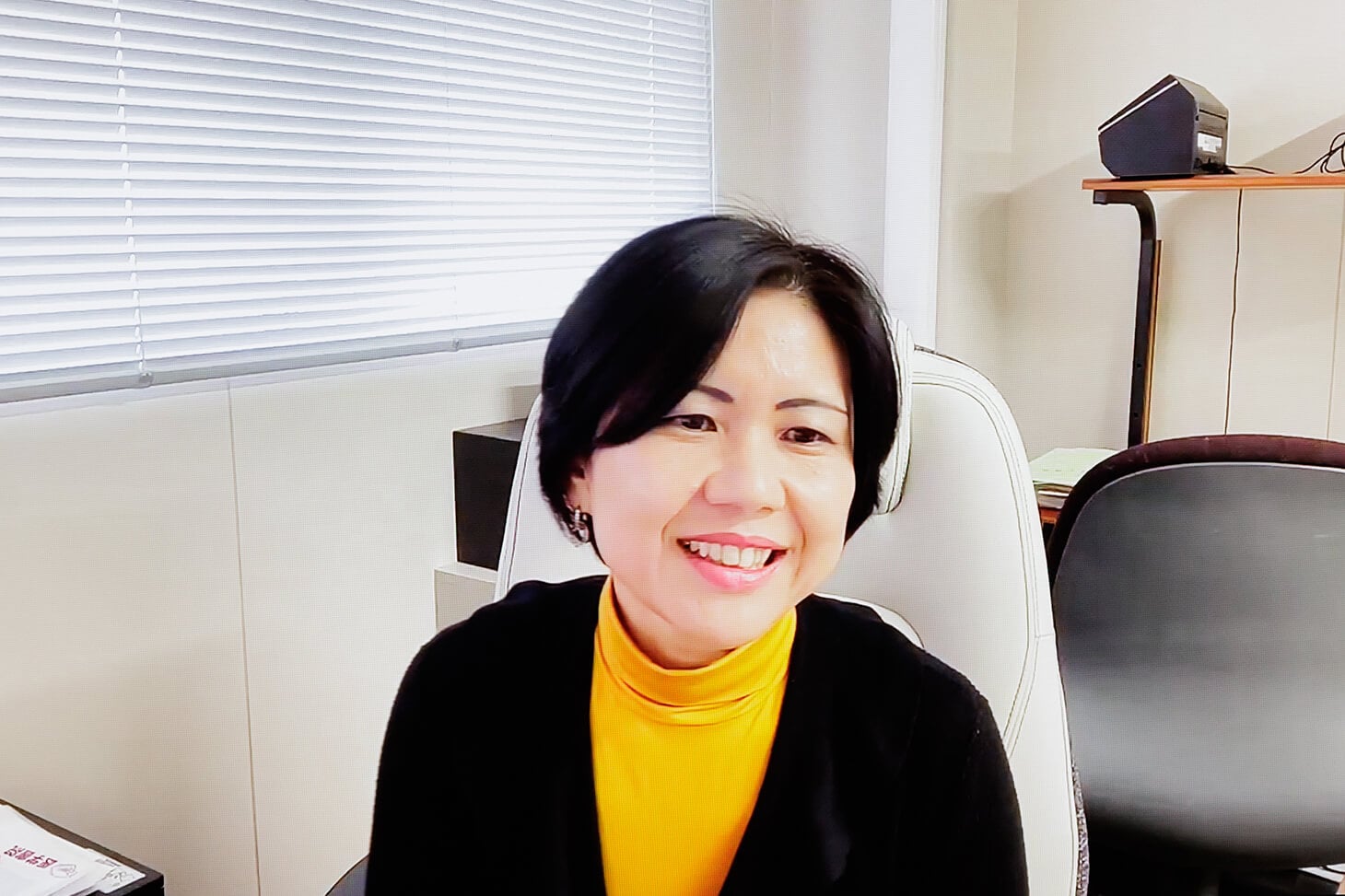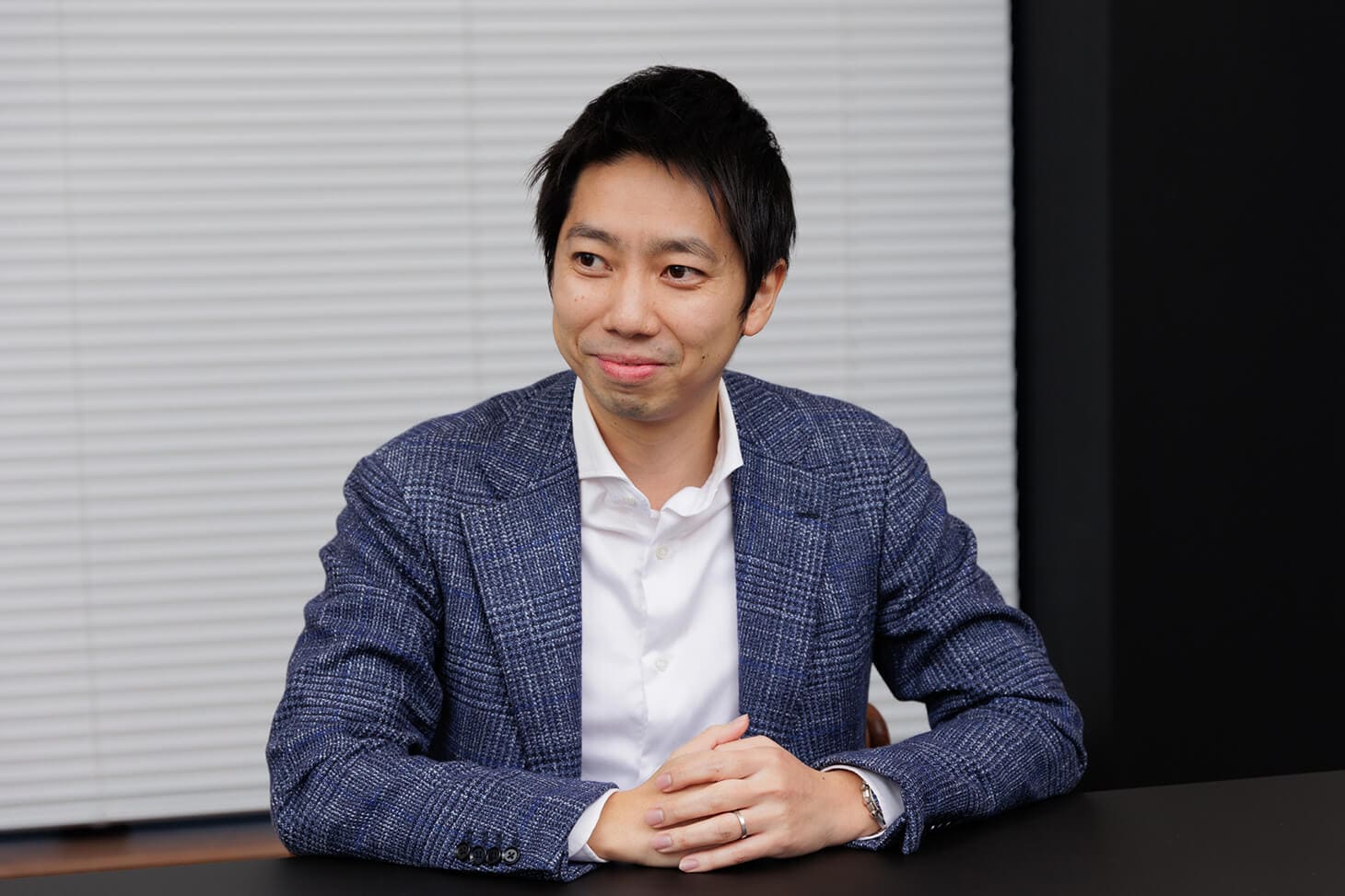
Increased Awareness on Cognitive Health-Special interview with SVONIX
- Digital Business Modeling

Cognitive health (one’s ability to learn, remember and think) is one of the key elements for people’s well-being as we live longer, and hopefully in a healthier manner. Dementia not only impacts individuals, including patients, their families, employers, and friends, but the disease brings an increasing economic and societal burden as we are faced with a super-aging society.
Savonix offers a digital mobile platform that helps people better understand their cognitive health. The company’s mobile neurocognitive assessment and brain health platform allows end users to screen for key aspects of their cognitive health directly from their mobile device.
Inviting Pin Chin Kwok, CEO of Savonix, Dr. Simon Collinson, Chief Science Officer, and Dr. Maiko Sakamoto, Associate Professor at Saga University who specializes in neuropsychology, Deloitte held a discussion on the topic of this new frontier.
Increased Awareness on Cognitive Health
Peter Bristow, Senior Manager, Life Science & Health Care, Deloitte Tohmatsu Consulting LLC: In today’s discussion, we would like to cover what it means to maintain and improve cognitive health and why it is important to detect mild cognitive impairment (MCI) or dementia in its early stages. We would also like to hear experts’ opinions on how we, as a society, can successfully expand cognitive testing. Let us start from the basic question – what exactly is cognitive health?

Associate Professor Sakamoto: Cognitive health is approximate to your brain health as it relates to learning, remembering and thinking. Just like your physical health, brain health is important for quality of life. In this super-aging society, living longer is not enough – we need to maintain both physical and brain health to ensure well-being for the extended period of our life span. While people have traditionally focused on the physical side of health associated with aging, for example with the prevention of diabetes and looking for a cure for cancer, I see a growing awareness and emphasis of cognitive health over the past several years.
Partly due to an increasing amount of media reporting on MCI, a growing number of younger people are coming to memory clinics to test their cognition and memory – this is a great development. It is important to grasp where you are now in terms of your brain health, rather than waiting until you suspect yourself of having dementia. Nonetheless, these tests are out-of-pocket expenses for patients, which may prevent many from being tested.

Ms. Pin Chin Kwok: I agree that younger people are more aware of and concerned about their cognitive health. One of Savonix’s surveys among people in Japan, Singapore, and China indicated that more people in their 40s and 50s are worried whether or not they will develop dementia. Yet, despite their concern, they also admit that they do not know how to prevent the disease or how to detect it in its early stages.
Early detection of cognitive issues brings cost reduction benefits to individuals as well as to society. Formal medical care of Alzheimer's and dementia typically costs several times more than regular healthcare on healthy people. If you include the informal caring costs, such as home care and care givers time, the sum is often substantial. This healthcare system sustainability perspective, on top of improving people’s wellbeing, is why we as a company are very committed to the early detection of these issues.

Dr. Simon Collinson: Primary prevention strategies should start early. From both the pathological and pharmaceutical perspectives, it is too late to reverse decline when you are diagnosed as having dementia. Medicines may be able to delay the progress of the disease to a certain extent, but they cannot prevent it from happening. We need early intervention, which requires early detection.

Associate Professor Sakamoto: Taking a cognitive test is also important in terms of being able to understand the baseline of your brain health, not just in terms of early detection of MCI and dementia. Even if the test result shows no issue, you get to know where you are as to your cognitive level and see how it may change over the course of time. You can also compare your cognitive level with the same generation or people with similar educational background.
Dr. Simon Collinson: I cannot agree more. The research shows that you see changes in cognition long before you develop MCI. Seeing those changes allows you to understand your risk of developing dementia.
How to Prevent Cognitive Functions from Deteriorating
Peter: Thank you for giving us an overview on the growing awareness of cognitive health and the importance of early detection. Now, what is the key to maintaining cognitive health?
Associate Professor Sakamoto: Healthy diet and exercise. Training your brain is also crucial. Simply put, go out, meet people, and have fun. Of course, good quality sleep is another key element.
Dr. Simon Collinson: According to a research project that we at Savonix recently conducted with Boston University, the top three factors that contribute to preventing dementia are exercise, sleep, and avoidance of smoking and alcohol. This is nothing new in terms of a healthy lifestyle. Plus, education in the early stages of your life can be preventive too, meaning that people with higher education tend to be less likely to develop dementia. Also, maintaining connection with people and society is important. Some studies show that hearing loss and depression can also result in a higher risk for dementia in the later years.
Ms. Pin Chin Kwok: Ways to keep your brain healthy are no different than ways to prevent chronic diseases like diabetes. The question is - how do we encourage people to embrace this healthy lifestyle we are suggesting? Here again, we believe that cognitive tests can work as a catalyst. We have seen that people tend to act if they are encouraged to improve lifestyle after taking a test and learning about their results. This is what we have actually witnessed in Japan – when a company offered employees cognitive tests twice in six months, the second time results tended to improve from the first one. Just like the saying, “when you measure something, you can change it.” The lesson is - do not wait until you have symptoms but know where you are. The simple exercise of taking a test can in and of itself be a preventive and help make improvements.
Takayuki Tao, Senior Manager, Life Science & Health Care, Deloitte Tohmatsu Consulting LLC: How do you see the impact of COVID-19 quarantine? Now many companies have moved to remote working and there is less exercise, in-person interaction and I am curious about how this will affect dementia or MCI.
Associate Professor Sakamoto: Most people in their 60s and 70s are trying to be at home more because they are worried more about getting infected by COVID-19. As a result, the lack of exercise and little social interaction may cause more dementia and MCI cases in the future. Also, there may be some impact to younger generations as well, and we will be able to get more information on this topic 2-3 years’ time.
What it Takes to Encourage People to Take a Cognitive Test
Peter: How can cognitive testing be more widely accepted?
Ms. Pin Chin Kwok: Raising awareness and creating an ecosystem will be the key. According to Savonix’s research in the US, 92% of people who were suspected of having MCI had not seen doctors. This result really shows how important it is to raise awareness of cognitive health. On top of that, a broad ecosystem that supports test results is necessary, with many related services working together, including doctors and clinics who can diagnose potential patients and sport gyms that can help you exercise to prevent the deterioration of cognitive functions.
Japanese companies are showing growing interest in cognitive testing with the retirement age being raised or abolished. One of Savonix’s Japanese clients conducts cognitive testing among employees, while offering special programs for those with higher risk. This whole initiative can be considered as one type of ecosystem – educating employees on cognitive health, having them take tests, and offering brain stimulating programs and gym activities. Creating an ecosystem and making supportive products and services easily available will increase motivation.
Takayuki Tao: I agree that ecosystem will be key to raising awareness and promoting cognitive health testing. This cannot be done by clinicians, pharma or tech companies alone. It will be critical to have strong driving forces to set up and operate the ecosystem, involve right stakeholders who really agree to the vision and to design proper business models where every stakeholder can get benefit from the ecosystem.

Taichi Kido, Director, Life Science & Health Care, Deloitte Tohmatsu Consulting LLC: Let me show a case example. In Osaka-prefecture, the local government distributes a mobile application called “Asmile” with citizens which have multiple functions; it keeps a record of their health, provides beneficial information for health through the app, etc. People can receive exchangeable points by conducting healthy activities. This is one of the ecosystem and similar initiatives might be a trend in the future.

Associate Professor Sakamoto: In Japan, there is a stigma associated with mental health in general, which prevents people from taking cognitive tests and seeing doctors. Dementia often comes with other mental health issues including depression, anxiety, and panic attacks, for which people have a general fear. We need to educate people to demystify those fears and stigma. We want to focus on the positive side – how maintaining cognitive health enables overall well-being, rather than regarding it as a stigma. Hopefully, education lowers some of the mental hurdles. In this regard, Savonix’s solution is helpful in that it makes testing very casual. You can take it at home privately, with the result only available for you. There is no need to formally see doctors or go to a clinic.
Taichi Kido: To eliminate stigma for dementia and mental health, the past case for depression in Japan might be a useful reference. There was a similar stigma for depression in the past, but advocacy with a message “Depression is (just a) mental common cold” contributed to people’s awareness and to mitigation of mental hurdle to go to clinics, especially for younger adults. Catchy but appropriate messaging can be a big trigger for education and advocacy.
Dr. Simon Collinson: Accessibility of the test is key. And cost is one of the important accessibility factors. I am hoping that the digital and technological-based cognitive testing can improve overall accessibility.
Associate Professor Sakamoto: One of the ways to popularize cognitive testing is to incorporate it into the statutory health-check requirement in Japan. As companies are required to offer a health-check to employees at least once a year, why not incorporate the brain health check as part of the comprehensive check-up?
Ms. Pin Chin Kwok: Private sector insurance companies can be a driver too. They can offer cognitive testing as part of their value-added services so that they can understand policy-holders’ risk of developing dementia in the future. If customers take preventive measures based on the results of the test, the companies’ total insurance payout can be reduced. This is win-win for both customers and insurers.
Development of Cognitive Health Studies
Peter: What are, if any, things Japan can learn from other markets in the world in terms of cognitive health?
Dr. Simon Collinson: Nowhere in the world is one market considered “mature” in terms of management of cognitive health in general but it is usually in the late stages. Victoria State in Australia has dementia specific clinics in shopping centers and places where many people visit. You can walk in without appointment, take a cognitive test, see a neuropsychologist, and get your results immediately. You do not need to wait for days to get results, often after seeing one type of professional after another. Making everything one-stop makes it more accessible and lowers some of the accessibility hurdles.
Ms. Pin Chin Kwok: While the focus used to be on dementia several years ago, the Singapore Government is starting to also focus on MCI and how to prevent it. Multiple initiatives are being explored in different neighborhoods. Singapore is pretty good at taking a coordinated approach and the Ministry of Health is now leading the way to develop a protocol. This is something we can look into going forward.
Associate Professor Sakamoto: In Japan, what we do in Saga City is that we have elderly people get together to play mahjong in a community center. This is an opportunity for them to get out of their house, meet other people, and have fun playing mahjong which inevitably engages their brain. After six-months of playing mahjong regularly, we screen “gray zone” people with suspected dementia to refer them to clinics. This is a small-scale initiative, but it does not cost anything at all and, most importantly, it works.
The Ministry of Health, Labour and Welfare put out what is called the “New Orange Plan” which focuses on policies around dementia. While it is great that the national government is making progress in addressing the issue of dementia, it is frustrating that the plan focuses mainly on people who are already suffering from MCI and dementia. The plan lacks concrete and detailed plans as of how we can prevent the disease. As we have already seen, it is more effective to take cognitive tests and detect MCI and dementia early on and begin various types of support as soon as possible.
Dr. Simon Collinson: Brain and cognitive health is a new agenda. There is a growing drive and engagement in the problem. While solutions are being developed, governments are trying to address the issue, and funds are becoming available. Faced with an aging society, brain health is the next frontier. In the UK, for example, dementia is the leading cause of death greater than other causes like cancer. So, we will see a growing focus on this area. This is a significant problem, requiring significant resources and coordination to bring about solutions. I expect Japan, with the experience of its super-aging society, will play a major role here.
Associate Professor Sakamoto: Given so many issues at both an individual and societal level concerning dementia, it is crucial to prevent it at all costs. This is why educating the younger generation is important. As the challenge is too large for any one individual or one company to tackle, collaboration, coordination and open communications among corporations, governments and academia are needed now more than ever.
